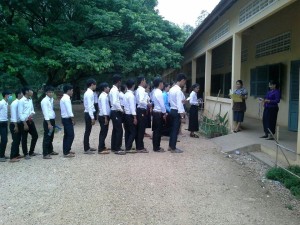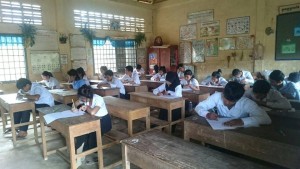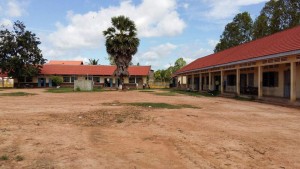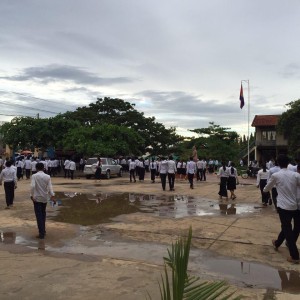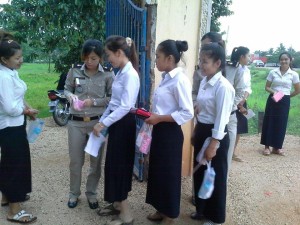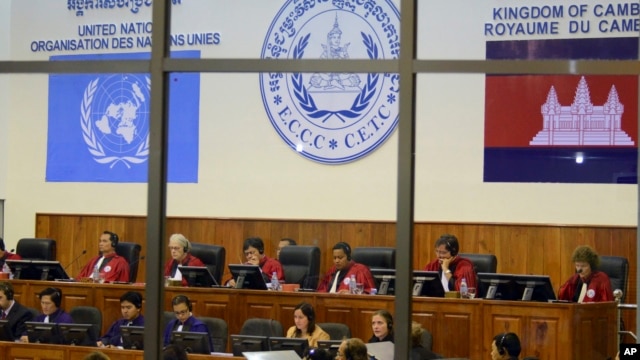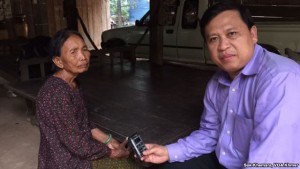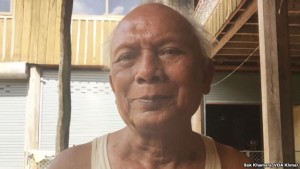This year is signified by its second attempt of education’s dictatorial regime of Cambodia to strictly monitor the exam’s session for high school students nationwide (watch video clip by RFA).
There are more than 87,000 candidates have lined up in different 150 exam centers to enter into 3576 restricted exam rooms. The nation’s budget is spent not less than 4 millions dollar to attain the two days nationwide exam on August 25-26, 2015.
Cambodia has been well-known of rampant corruption accounting from officers’ offices to school compounds. Urging to topple the school’s bribery and corruption regime, the new measure of dictatorial monitoring during exam has been taken place. The monitoring methods are incorporated by Anti-Corruption United (ACU) to dispatch exam monitors to inspect and to spook all entering students. The exam agents are scavenging hiding sheets under their pants, or sleeves, or inside their shoes etc. Exam monitors also walked around the rooms, the tables, and espy from all directions during the exam. Policemen are also dispatched to monitor the students as well.
This is weird scene looking from outsiders when they are recalling their high school exam experiences. Regardless to mention Western countries, Cambodia’s neighboring Thailand, their exam environment didn’t translate students’ confidence into hostility at all. Beside of well reform in education through fiscal transparency and increasing budget allocation towards the demands of schools especially to increase teacher’s decent salary, the curriculum and learning environment, all are conducive and incentive to students to grab knowledge at their maximum without grabbing the feeling of hostility.
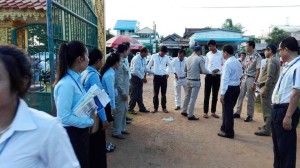
The attendance, the effort, and the scores of yearly accumulation, all are included into students’ portfolio. The exam has been happened for students to fulfill their learning representing about 30 to 40 percent only at the year end. Strangely, Cambodian students’ portfolio has not been included. Their whole year effort is badly excluded. They are counted only two days exam. If they passed, they are happy; but if they are failed, they are sad. Many of them have given up schools without fulfilling their dream to step up tertiary education.
This has been seen as dictatorial and extreme policy for Cambodian high school students to bring with them confidence after 12 years compulsory enrollment.
Competitiveness?
Cambodian students who are lining up to enter into the rooms of fame (exam rooms) with confusing feeling of working hard 365 days is likely meaningless for them because they have to fight for homestretch in just these two days.
Those students are competing in two days to pass the exam. It seems Cambodia is good in setting up a competitive stage by dispatching thousand monitor agents (arbitrators) to believe in fairness but not the ability of the players themselves. The high school students (players) have been poorly trained within the schools’compound to prepare the facing up with those alien arbitrators. The students are believed to force to walk on broken glass.
How about Cambodia’s competitiveness with outsiders? Hard to speak about it for sure!

